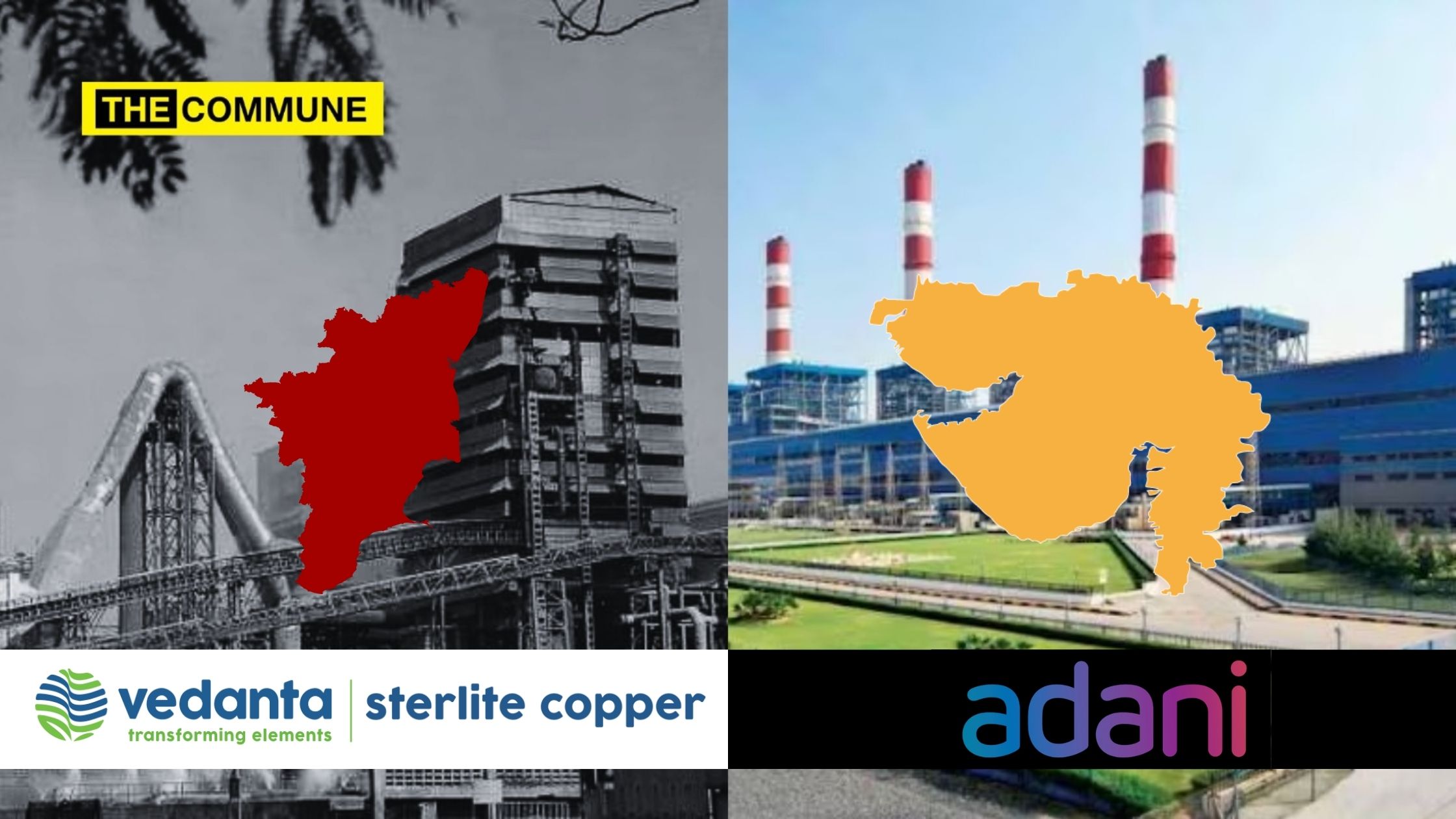
Sterlite Copper, a unit of Vedanta Ltd oversaw the operations of a copper plant with an annual capacity of four lakh tonnes in Tuticorin, Tamil Nadu until 2018 when the protests broke out.
Until 2018, India was a net exporter of copper, but the closure of Vedanta’s Sterlite Copper plant in Thoothukudi led to a decline in domestic production and exports. Commerce and Industries Minister Piyush Goyal attributed the drop in refined copper exports to the Sterlite plant’s closure, which accounted for 40% of the country’s total copper production.
The latest news is that the Adani Group is constructing a $1.2 billion single-location copper manufacturing plant in Mundra, Gujarat. This move aims to reduce India’s reliance on copper imports and support the country’s energy transition. The facility, operated by Kutch Copper Ltd (a subsidiary of Adani Enterprises), will have a 1 million tonnes capacity by March 2029. Adani intends to establish itself as a global leader in copper, aligning with the energy transition’s demand for the metal in technologies like electric vehicles, solar PV, wind, and batteries.
India’s per capita copper consumption is currently at 0.6 kg compared to the global average of 3.2 kg. Adani’s investment in copper production comes amidst the country’s growing demand, with the hope to double domestic copper consumption by 2030 due to clean energy systems and increased electric vehicle penetration.
The plant’s Phase I is expected to be operational by 2024, producing 500,000 tonnes of refined copper per annum, along with valuable by-products such as gold, silver, selenium, platinum, sulphuric acid, and phosphoric acid.
When the #Sterlite agitation was at its peak, many said that if a Cooper plant was so safe, let them have it in Gujarat. Well, they just decided to. The loss is Tamil Nadu's and India's as from being a net exporter, India became a net importer of Copper. https://t.co/IbFtPPNOb7
— Sumanth Raman (@sumanthraman) February 5, 2024
Critics argue that when the Sterlite plant was shut down, many in Tamil Nadu asked for a copper manufacturing plant to be set up in Gujarat. That is exactly what happened now with Adani Group setting up the Mundra copper manufacturing plant.
The Sterlite Protests
It is an open secret that the protests against Sterlite Copper in Tuticorin had the involvement of several antinational forces which led to the unrest and subsequent shutting down of the plant.
As India’s net copper imports grew, a significant surge was seen in Pakistan’s copper exports to China, raising questions about the influence of social unrest in Thoothukudi. The closure of Sterlite Copper was marked by protests orchestrated by NGOs and activists, including The Other Media (TOM). The Ministry of Home Affairs in April 2023 started examining complaints against TOM for alleged misuse of foreign funds in organizing protests against Sterlite. TOM, an FCRA-NGO founded in 1992, has faced scrutiny for its funding sources, including entities like the World Association For Christian Communication, the Christian Conference of Asia, CORDAID of Netherlands, and Trócaire.
These NGOs, operating under the guise of environmental and social justice, have been accused of manipulating social unrest for their agendas. The Sterlite protests, involving figures like Fathima Babu, Nityanand Jayaraman, Mohan C. Lazarus, and Samarendra Das, received political patronage and media coverage. The protesters, supported by these NGOs and activists, demanded the permanent closure of Sterlite, resulting in the loss of thousands of jobs.
The role of media in amplifying the narratives of these NGOs and activists also came under scrutiny. Portals like The News Minute and The Wire published articles and interviews featuring Nityanand Jayaraman without disclosing his association with TOM. The media played a crucial role in manufacturing opinions and building narratives that contributed to social tensions.
The Sterlite episode highlights the interconnectedness of foreign-funded NGOs, activists, and media outlets, forming what is referred to as the NGO-Activist-Media (NAM) troika. This ecosystem, driven by a certain political and ideological position, aims to influence public opinion and policy decisions. The government’s recent crackdown on FCRA licenses has disrupted the funding flow to these organizations.
What was Tamil Nadu’s loss is now Gujarat’s gain.
Subscribe to our channels on Telegram, WhatsApp, and Instagram and get the best stories of the day delivered to you personally.




